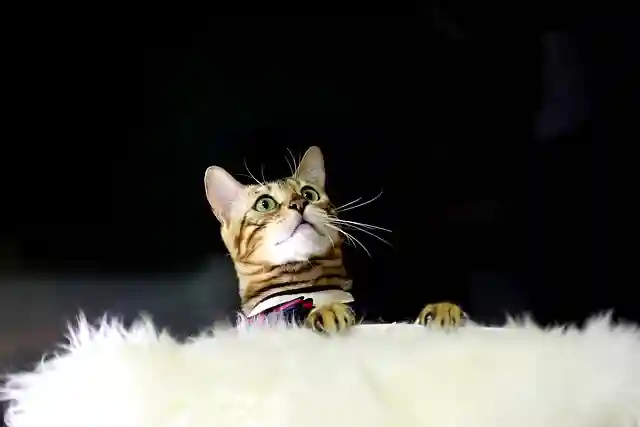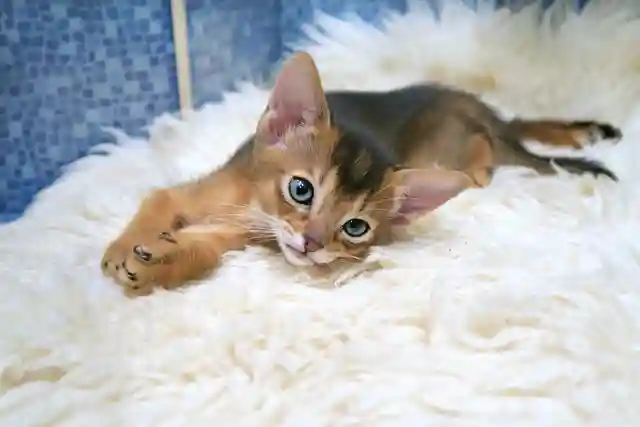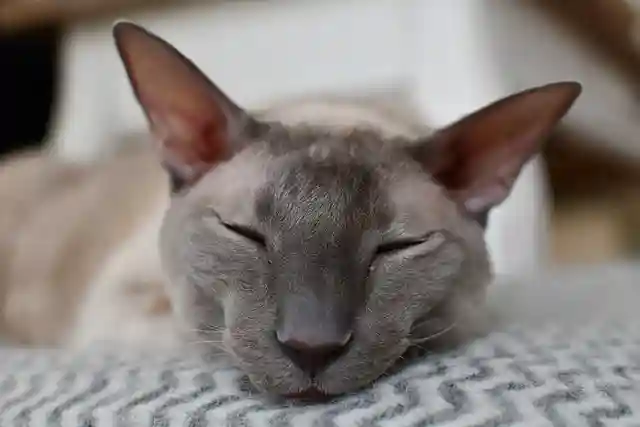While most cat lovers seek affectionate and friendly feline companions, some are drawn to the challenge of raising more assertive and spirited cats. In this comprehensive guide, we will delve into the world of the 10 most aggressive domestic cat breeds. From their distinctive traits to tips on caring for them, we’ll cover everything you need to know about these captivating yet feisty feline companions.
Understanding Aggressive Domestic Cat Breeds
Various factors, including genetics, upbringing, and environment, can influence aggression in cats. It’s important to note that not all cats of these breeds will display aggressive behavior, but they are more predisposed to it compared to other breeds.
1. Siamese Cats

Siamese cats are known for their striking blue almond-shaped eyes and their vocal nature. They can be fiercely territorial, which can sometimes lead to aggressive behavior when they feel their territory is threatened.
2. Bengal Cats

Bengal cats exhibit a stunning appearance, characterized by their distinctive leopard spots and gracefully athletic bodies. Their ancestry traces back to the wild Asian leopard cat, which explains their innate wild streak that persists in their behavior. These felines are not only intelligent but also incredibly curious, brimming with boundless energy. When left to their own devices, Bengal cats are known to explore drawers and cabinets with a sense of adventure. Surprisingly, they may even take a plunge into a pool without a second thought.
Given their penchant for climbing and exploration, Bengal cats thrive in environments with plenty of vertical space, such as cat trees. This satisfies their natural need to observe the world from elevated vantage points. Additionally, their playful nature often leads them to “hide” objects, making them engaging companions in any household.
While Bengal cats are undeniably affectionate toward their families, they can be somewhat reserved around unfamiliar faces. This reserved demeanor is a testament to their loyalty and attachment to their owners. However, their high energy levels can sometimes result in boisterous play or occasional moments of feistiness if they lack opportunities to release pent-up energy.
3. Scottish Fold Cats

Scottish Fold cats are recognized by their unique folded ears and sweet expressions. While they are generally gentle, they can display aggression when they are in pain or discomfort due to their genetic predisposition to certain health issues.
4. Sphynx Cats

Sphynx cats are hairless and have a distinctive appearance. They are known for their playful nature, but they can sometimes become aggressive if not properly socialized and stimulated.
5. Abyssinian Cats

Abyssinian cats are one of the oldest known domestic cat breeds. They are highly active and curious, and their energy can sometimes manifest as aggression if not channeled appropriately.
6. Egyptian Mau Cats

Egyptian Mau cats are elegant and athletic domestic cats. They are fiercely protective of their families and may exhibit aggressive behavior if they perceive a threat to their loved ones.
7. Manx Cats

Manx cats are known for their lack of tails or short tails. They are generally friendly, but some may become aggressive if they feel cornered or threatened.
8. Cornish Rex Cats

Cornish Rex cats have unique curly coats and are known for their playful personalities. However, excessive teasing or rough handling can trigger aggression in them.
9. Burmese Cats

Burmese cats are affectionate and enjoy human companionship. Nevertheless, they can display aggression if they feel ignored or neglected.
10. Russian Blue Cats

Russian Blue cats are known for their striking blue-gray coat and gentle demeanor. However, changes in their routine or environment can make them anxious and potentially aggressive.
Unique Characteristics of the Top 10 Most Aggressive Domestic Cat Breeds
| Breed | Unique Characteristics |
|---|---|
| Siamese Cats | Striking blue almond-shaped eyes, vocal, territorial |
| Bengal Cats | Exotic appearance with leopard-like spots, highly energetic |
| Scottish Fold Cats | Unique folded ears, generally gentle, prone to health issues |
| Sphynx Cats | Hairless with a distinctive appearance, playful when socialized |
| Abyssinian Cats | One of the oldest domestic breeds, highly active and curious |
| Egyptian Mau Cats | Elegant and athletic, protective of family |
| Manx Cats | Lack of tails or short tails, generally friendly |
| Cornish Rex Cats | Unique curly coats, playful but sensitive to rough handling |
| Burmese Cats | Affectionate, enjoys human companionship, sensitive |
| Russian Blue Cats | Striking blue-gray coat, gentle but prone to anxiety |
Caring for Aggressive Domestic Cat Breeds
Owning an aggressive domestic cat breed comes with its challenges, but with the right care and attention, you can build a loving and harmonious relationship with your feline friend.
1. Socialization:
Proper socialization is paramount when dealing with aggressive domestic cat breeds. Begin socializing them at a young age by exposing them to various people, animals, and environments. Gradual, positive experiences can help reduce their aggressive tendencies and make them more comfortable in different situations.
2. Mental Stimulation:
Aggressive domestic cat breeds are often brimming with energy and curiosity. To prevent them from channeling this energy into aggressive behavior, provide them with ample mental stimulation. Interactive toys, puzzle feeders, and engaging playtime sessions can keep their minds active and satisfied.
3. Physical Exercise:
Regular physical exercise is essential for these active breeds. Create a safe indoor environment with climbing structures like cat trees and shelves, tunnels, and toys to encourage physical activity. Engage them in interactive play to help burn off excess energy and prevent boredom-related aggression.
4. Routine Veterinary Care:
Aggressive domestic cat breeds may be prone to specific health issues. Regular check-ups with a veterinarian are crucial to monitor their overall health. Addressing health concerns promptly can prevent discomfort, which can sometimes trigger aggressive behavior.
5. Consistent Training:
Implement consistent training routines to reinforce positive behavior and discourage aggression. Use reward-based methods to encourage good behavior and discourage negative actions. Be patient and persistent in your training efforts.
6. Safe Spaces:
Provide your aggressive cat with safe spaces where they can retreat when feeling overwhelmed or stressed. These spaces can be cozy cat beds, enclosed hiding spots, or quiet rooms where they can have some privacy.
7. Seek Professional Help:
If your cat’s aggression issues persist or worsen despite your efforts, consider seeking guidance from a professional animal behaviorist or a veterinarian who specializes in feline behavior. They can provide tailored strategies to manage and reduce aggression.
8. Monitor Stressors:
Identify and eliminate potential stressors in your cat’s environment. Aggressive behavior can often be triggered by changes, such as new pets, new family members, or alterations to their routines. Minimize these stressors to create a more calming atmosphere.
9. Patience and Understanding:
Above all, remember that these cats have unique personalities, and their aggression may be their way of expressing discomfort or fear. Approach them with patience, love, and understanding, building a bond of trust over time.
Conclusion
Understanding and caring for the 10 most aggressive domestic cat breeds can be a rewarding experience for cat enthusiasts who appreciate their unique personalities. By providing proper socialization, mental stimulation, and veterinary care, you can ensure a happy and harmonious life with your spirited feline companion.
Treat every cat as an individual. While breed characteristics can influence behavior, there is always room for love and connection with these beautiful creatures.
Frequently Asked Questions (FAQs)
Are all domestic cats of aggressive breeds aggressive?
No, not all domestic cats of these breeds are aggressive, but they are more predisposed to it.
Can aggressive domestic cat breeds be trained to be less aggressive?
Yes, with patience and proper training, aggressive tendencies can be managed and reduced.
Is it safe to have an aggressive domestic cat breed in a household with children?
It can be safe, but close supervision and teaching children how to interact with the cat are crucial.
What is the lifespan of aggressive domestic cat breeds?
The lifespan varies by breed, but it typically ranges from 10 to 15 years.
Do aggressive domestic cat breeds require special diets?
Some may have dietary restrictions due to health issues, so it’s essential to consult with a veterinarian.
Are there any specific grooming requirements for these domestic breeds?
Grooming needs vary by breed, so it’s best to research the specific grooming needs of your cat’s breed.







Leave a Comment
You must be logged in to post a comment.